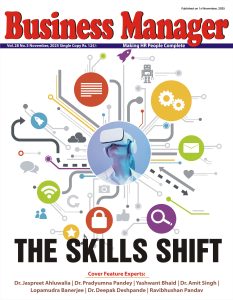Institutions should be agents of change in society and the community. Knowledge utilisation is a focal point of institutional impact on the community. Institutions have a self-renewal process. One main contribution of an institution is to generate new values in the society or into the field of its...
ARTICLES
Understanding Role Efficacy: The Core of Udai Pareek’s Model
The true measure of a great thinker is not just in the theories they propose but in how their ideas inspire and transform. Udai Pareek's Role Efficacy Model has done precisely for countless HR professionals.
Today, the OCTAPACE Culture survey is used to identify the level of ethos/values practised in organization, Employee Engagement and Job Satisfaction of employees.
It should help individuals to recognize their potential and help them to contribute their best towards the various organizational roles they are expected to perform.
Recalibrating Historiography or Taking a Balanced View on Indian Historical Growth
The purpose of this text is not to get into these issues, which although important, would require more time and space to explore. The purpose is to show the continuity of an Indian stream of thought which has definite components of spirituality, revelation, and one might almost say religion.
Welcome to The Third Eye - a column where I, your friendly neighbourhood search consultant, take a humorous, sardonic look at the bewildering world of Human Resources. From a perch high above the trenches, I observe the intricate, often amusing or even absurd dance between employees and employers...
Empathy is the bridge that transforms misunderstandings into connections; it allows us to see beyond the surface and understand the struggles that shape our colleagues.
Persuasion is an effective technique that can be applied both favourably and unfavourably. We may improve our communication and negotiating skills in all spheres of our lives, from our interpersonal relationships to our professional careers, by comprehending the psychology of persuasion.
HR managers must recognize that job stability and frequent changes both have their merits. Candidates with diverse experiences can offer valuable perspectives and skills, while those with long tenure may bring deep organisational knowledge.
In today's dynamic workplace, adaptive leadership allows managers and Leaders to harness the strengths of their teams while guiding them through challenges and ambiguity.















